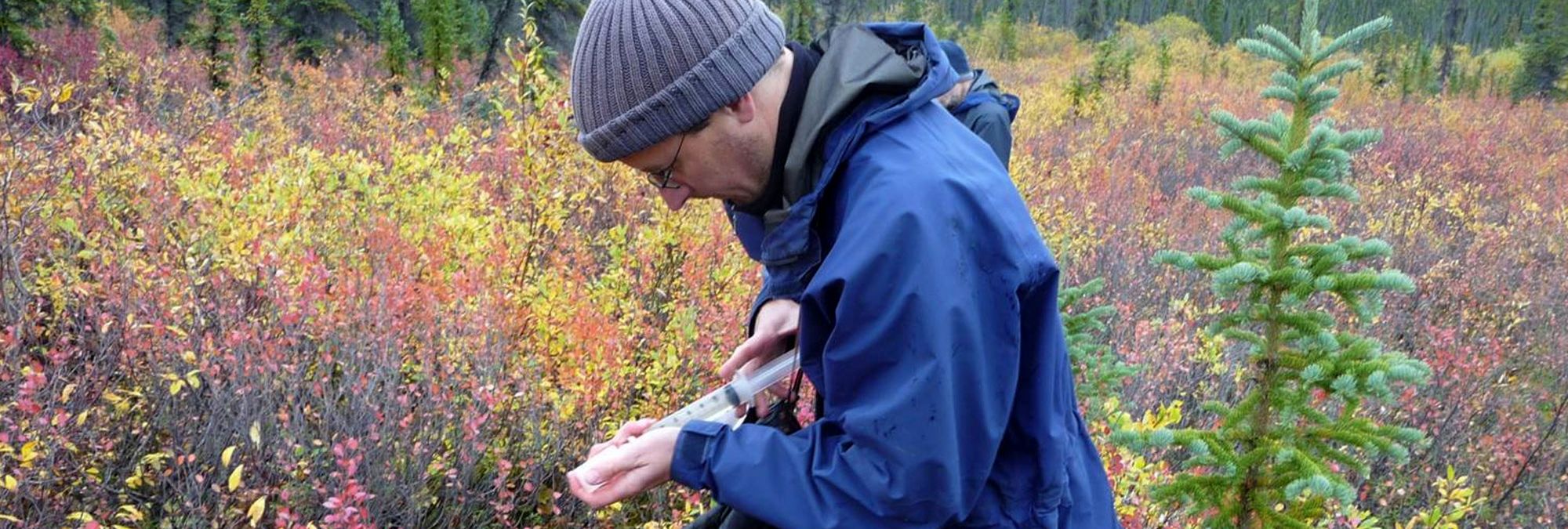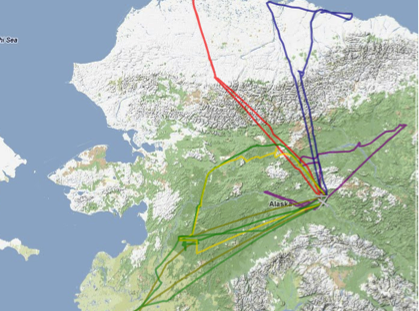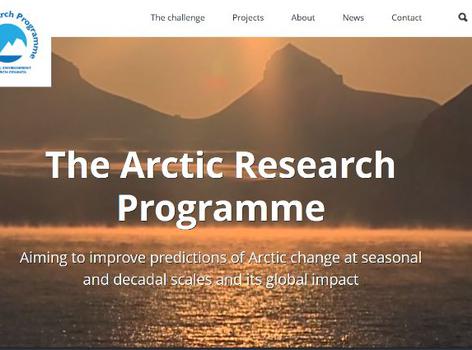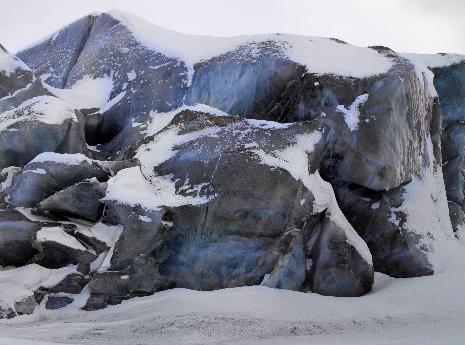Carbon Cycling Linkages to Permafrost Systems (CYCLOPS)
Vegetation generally absorbs carbon emissions from the atmosphere, and a warming Arctic is predicted to support more plant life which could offset rising emissions. However, in recent years improving knowledge and models of permafrost thawing suggest that its impacts might completely offset the benefits of more vegetation, leaving the role and net greenhouse gas contribution of the Arctic uncertain.
This has major implications for forecasts of climate change over the next century and beyond, and so it is important to quantify the potential impacts of permafrost thawing as accurately as possible. In order to do so, CYCLOPS scientists explore little-studied interactions between different types of vegetation and permafrost. Different ecosystems, such as tundra, peatland and forests, are likely to exhibit different rates of thawing and respond to it in different ways. Quantifying these differences is crucial so that permafrost thawing and its impacts may be represented more accurately in large-scale models.
CYCLOPS
Arctic warming will release greenhouse gases but will also lead to more the growth of vegetation which generally absorbs carbon emissions. We need to understand how those processes interact.
Inuvik, Northwest Territories
View our interactive mapThe CYCLOPS team will undertake fieldwork in boreal and Arctic Canada in collaboration with local research projects, looking to determine the extent to which different plant communities insulate their soil and protect permafrost from thawing. Some ecosystems are also prone to burning which accelerates thawing considerably, so resilience to and recovery from fire may play an important role in permafrost preservation. Finally, free-draining ecosystems such as forests or tundra respond differently to permafrost thaw than peatlands which tend to have poor drainage.
The wealth of data from these different ecosystems in different stages of their life cycle will allow for much more detailed, process-based models of vegetation-permafrost interactions and permafrost thaw.
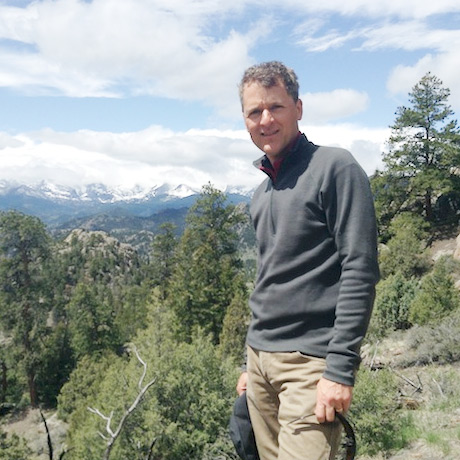
Professor Mathew Williams, Lead Investigator
Professor Mathew Williams is the Chair of Global Change Ecology at the University of Edinburgh, although he was recently a visiting scientist at the National Center for Atmospheric Research at Boulder, Colorado [until June 2013].
His research focusses on the terrestrial carbon cycle in terrestrial ecosystems and its links to global climatic change. In particular, he uses process-based modelling to study the interactions of soil and plant processes across environmental gradients.
In addition to being the Principal Investigator for CYCLOPS, Prof Williams also leads a variety of other NERC-funded projects including the terrestrial component of the NERC Greenhouse Gas Programme. These highlight his research foci outside of the Arctic, which include the impact of disturbance (from fire or human activity) on and drought sensitivity of forests. His website at the University of Edinburgh’s School of Geosciences features a section explaining his research for the layperson.
